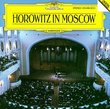| All Artists: Ludwig van Beethoven, Seiji Ozawa, Boston Symphony Orchestra, Rudolf Serkin Title: Beethoven: Piano Concertos Nos. 2 & 4 Members Wishing: 0 Total Copies: 1 Label: Telarc Release Date: 10/25/1990 Genre: Classical Styles: Chamber Music, Forms & Genres, Concertos, Historical Periods, Classical (c.1770-1830), Instruments, Keyboard Number of Discs: 1 SwapaCD Credits: 1 UPC: 089408006425 |
Search - Ludwig van Beethoven, Seiji Ozawa, Boston Symphony Orchestra :: Beethoven: Piano Concertos Nos. 2 & 4
 | Ludwig van Beethoven, Seiji Ozawa, Boston Symphony Orchestra Beethoven: Piano Concertos Nos. 2 & 4 Genre: Classical
![header=[] body=[This CD is available to be requested as disc only.]](/images/attributes/disc.png?v=15401716) ![header=[] body=[This CD is available to be requested with the disc and back insert.]](/images/attributes/disc_back.png?v=15401716) ![header=[] body=[This CD is available to be requested with the disc and front insert.]](/images/attributes/disc_front.png?v=15401716) ![header=[] body=[This CD is available to be requested with the disc, front and back inserts.]](/images/attributes/disc_front_back.png?v=15401716) |
Larger Image |
CD DetailsSimilar CDs
Similarly Requested CDs
|
CD ReviewsDeserves 10 stars! Norm Hall | California | 01/02/2005 (5 out of 5 stars) "I had the privilege of seeing/hearing Serkin perform this concerto in person with the Los Angeles Philamonic. Serkin plays this piece as well as all the music he plays with such humility that I swear he lets the composer come through him. This concerto which is my favorite is a beautiful conversation between the piano and the orchestra. Serkin hears the orchestra and responds with the most heartbreaking responses. If you only have one version of the concerto, this is the one." Serkin plays Beethoven Joyce Lee | Dallas, Texas | 12/24/2005 (5 out of 5 stars) "A wonderful recording. Serkin's playing is so thoughtful and doesn't draw attention to himself. It's great." Unremarkable reading of a remarkable concerto John Grabowski | USA | 02/18/2010 (3 out of 5 stars) "Serkin at the end of his career. Ozawa drifting somewhere in his. What could make for a better set of Beethoven concerti, eh? This album, recorded at the beginning of the digital age, sounds fairly good, though a little distant and fuzzy at times, and the proponents of analogue being "warmer" will find much ammunition for their argument here. Serkin play two concerti he must have played hundreds of times in his career (and I heard him play the Fourth twice) and Ozawa gives the whole the sort of smeary blend that was taught to him by "the master," his mentor Herbert von Karajan. The result is...well, what you'd hear at Boston's Symphony Hall on a very typical night at the time. Nothing bad but nothing spectacular either.
I don't really have anything to say about the Second, which I consider one of the worst pieces Beethoven ever wrote. (He later came to consider it this way himself.) As for the Fourth, neither Serkin nor Ozawa pushes this as far as it can go. The first movement really has two development sections back to back; the first sticks pretty close to shoreline. The second wanders far afield and is Beethoven exploring what were then new boundaries. I think it's fairly self evident that any intelligent interpreter uses that second one to really push in terms of rubato, color, pedaling, as this is where Beethoven breaks new symphonic ground. (In a different-but-similar vain, Beethoven reserved the recap for this in his Fifth Symphony, which contains a second, new, wilder development section.) Serkin and Ozawa don't push much; their response in the two development sections are the same. Add to that a fairly monotonous sound from the BSO and you get a rather homogenized LvB 4th. Ozawa likes this approach--you should hear him apply it to Mahler's Second Symphony!--but I think it makes for a rather tame performance of one of the most poetic, rhapsodic work of all time. There's nothing here that hasn't been said in countless other recordings, no real reason to rerecord these pieces, pounding war horses into dead horses. Ditto the slow movement, which is usually the highlight of any Beethoven 4th concerto disc. Contrast this rather well-mannered performance with Arrau/Klemperer on Testament (live). This is one of the most thrilling Beethoven 4th's I've ever heard. In that second development section of the first movement Arrau, in the midst of passion (yes, for those of you who've only heard his calculated studio performances, Arrau live was a different animal) drops some notes and overplays a few passages. But who cares? There's a burning intensity there, and the sadness and longing is palpable. Serkin just can't match this kind of dedication. If you must have better sound than the Klemp, there's also a very fine studio Fourth with Arrau and Haitink/Concertgebouw. Even Wilhelm Kempff, hardly the most exciting pianist out there, gives us a fine Fourth with Paul van Kempen. (I prefer it to his other, more easily available DG recording with Ferdinand Leitner, but that one also has its champions.) This disc here is fairly dispensable, and harkens back to the 80s when every label just about was flooding the market with unremarkable digital remakes of luke-warm quality (Mehta, Barenboim, Ozawa, Marriner, et al). Superfluous." |

 Track Listings (6) - Disc #1
Track Listings (6) - Disc #1










